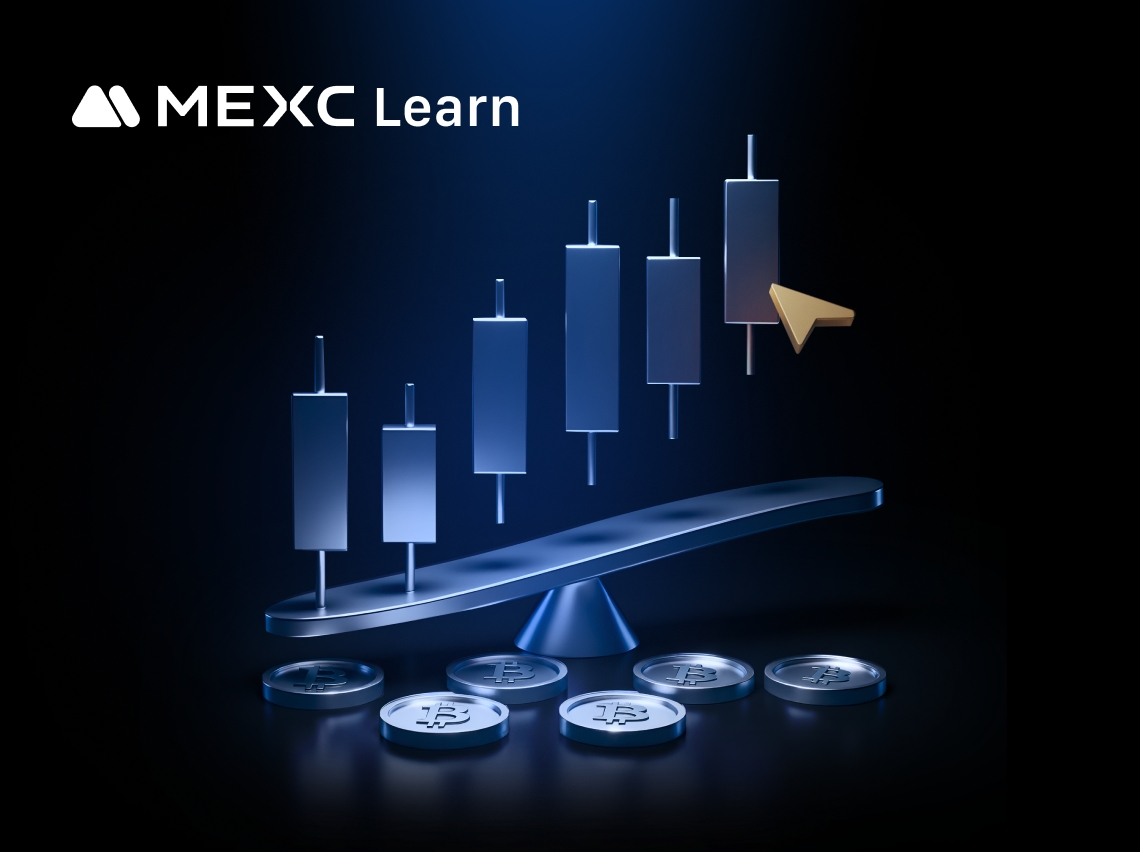Understanding Sideways Markets
- Definition and characteristics of sideways markets in cryptocurrency trading: Sideways markets, also known as consolidation phases, occur when a cryptocurrency's price fluctuates within a defined range, showing reduced volatility and lacking a clear upward or downward trend. For ETH, these periods are marked by price movement between established support and resistance levels, often with declining trading volume.
- How to identify when Ethereum is trading within a range-bound pattern: ETH's sideways movement can be identified by observing consistent bounces between support and resistance levels, typically accompanied by decreasing volume and a lack of strong directional momentum.
- Psychological factors that contribute to sideways markets: Traders' indecision, uncertainty about macroeconomic factors, and anticipation of major upgrades (such as the Dencun or upcoming Pectra hard fork) often lead to periods of consolidation as market participants wait for new catalysts for Ether prices.
- Typical duration and historical patterns of Ethereum consolidation phases: ETH token consolidation phases can last from several days to weeks. For example, during February-March 2025, Ethereum traded in a tight range between $4,100 and $4,400 for nearly three weeks before a significant breakout.
Example: In cryptocurrency trading, Ethereum (ETH) frequently enters sideways movements where price becomes confined within a specific range. These consolidation phases are characterized by reduced volatility between defined support and resistance levels. For traders, identifying these patterns is crucial as they often precede significant breakout moves offering profitable opportunities. You can identify when Ether is trading in a range-bound pattern by observing consistent bounces between support and resistance levels, typically with decreasing volume. During February-March 2025, ETH token demonstrated classic sideways movement between $4,100 and $4,400 for nearly three weeks before a significant upward breakout.
Key Technical Indicators for Breakout Detection
- Volume analysis as a leading indicator for potential breakouts: A sustained decrease in volume during consolidation followed by a significant spike often signals an imminent breakout for ETH token.
- Using Bollinger Bands to identify compression before breakouts: Bollinger Bands 'squeeze'—where the bands contract—indicates reduced volatility and often precedes explosive price movements in Ethereum.
- RSI divergence patterns that precede directional moves: Bullish divergence occurs when price forms lower lows while RSI forms higher lows, suggesting underlying buying pressure despite apparent weakness in Ether.
- The importance of support and resistance levels in identifying breakout zones: Key levels such as $4,150 (support) and $4,788 (resistance) are critical for identifying potential breakout zones in ETH's price action.
- Setting up price alerts to catch breakouts early: Traders can set alerts for volume surges, price breaks at key levels, and Bollinger Band contractions to catch Ethereum breakouts as they happen.
Example: Volume serves as a critical breakout indicator for Ethereum (ETH). A sustained volume decrease during consolidation followed by a significant spike often signals an imminent breakout. For instance, Ether's April 2025 sideways trading showed a 40% decrease in average volume followed by a 3x surge that preceded a 15% upward movement. Bollinger Bands compression indicates decreased volatility and often precedes explosive ETH token price movements. Meanwhile, RSI divergence patterns can predict breakout directions—bullish divergence occurs when price forms lower lows while RSI forms higher lows, suggesting underlying buying pressure despite apparent weakness in Ethereum.
Chart Patterns That Signal Potential Breakouts
- Triangle patterns (ascending, descending, and symmetrical) in Ethereum charts: Ascending triangles typically signal bullish breakouts, while descending triangles suggest bearish moves for ETH.
- Rectangle and flag formations as continuation patterns: Rectangle formations appear as horizontal trading ranges with parallel support/resistance lines, while flag patterns indicate short-term consolidation before continuation of Ether price movements.
- Head and shoulders patterns as reversal indicators: These patterns can signal a reversal in ETH's price trend.
- Cup and handle patterns in longer timeframes: This pattern forms a rounded bottom followed by a short downward drift before breaking upward, often seen in Ethereum trading.
- The significance of double tops and double bottoms: Double tops and bottoms occur when price tests a level twice without breaking through, creating either an 'M' or 'W' shape that often precedes significant moves in the ETH token.
Example: Triangle patterns on Ethereum (ETH) charts offer valuable breakout signals. Ascending triangles typically signal bullish breakouts, while descending triangles suggest bearish moves. During June 2025, Ether formed a textbook ascending triangle before breaking upward for a 20% gain. Rectangle formations appear as horizontal trading ranges with parallel support/resistance lines, while cup and handle patterns form a rounded bottom followed by a short downward drift before breaking upward. Double tops and bottoms occur when ETH price tests a level twice without breaking through, creating either an 'M' or 'W' shape that often precedes significant moves in Ethereum.
Trading Strategies for Ethereum Breakouts
- The breakout confirmation strategy: Wait for confirmation through strong volume surge, decisive candle close beyond the breakout level, and ETH price holding position for at least 4 hours.
- The false breakout avoidance strategy: Use time filters and multiple timeframe analysis to ensure the Ethereum breakout is significant across various chart intervals.
- Risk management techniques specific to breakout trading: Implement strict stop-losses 1-2% below breakout levels, position sizing risking only 1-2% of capital per trade, and taking partial profits while moving stops to breakeven when trading ETH.
- Setting appropriate stop-loss and take-profit levels: Measure the consolidation pattern's height and project it from the breakout point for take-profit targets on Ether trades.
- Position sizing considerations for breakout trades: Adjust position size to limit risk exposure and maximize potential returns when trading ETH token.
Example: For reliable Ethereum (ETH) breakout trading, wait for confirmation through strong volume surge, decisive candle close beyond the breakout level, and price holding position for at least 4 hours. To avoid false breakouts, use time filters and multiple timeframe analysis to ensure the breakout is significant across various chart intervals. Risk management is crucial when trading Ether breakouts. Implement strict stop-losses 1-2% below breakout levels, position sizing risking only 1-2% of capital per trade, and taking partial profits while moving stops to breakeven. For take-profit targets, measure the consolidation pattern's height and project it from the breakout point when trading ETH token.
Practical Tools and Platforms for Breakout Trading
- Setting up effective Ethereum chart layouts on MEXC: Configure charts to display multiple timeframes, volume indicators with moving averages, and Bollinger Bands for ETH analysis.
- Configuring scanner tools to identify potential breakout candidates: Use MEXC's scanner tools to detect low volatility levels, decreasing volume patterns, and Ether price approaching key resistance.
- Using the MEXC mobile app for on-the-go breakout monitoring: The app enables real-time alerts, customizable watchlists, and full-featured charting for ETH token.
- Creating custom indicators and alerts to catch breakouts early: Set custom alerts for volume surges, price breaks at key levels, and Bollinger Band contractions when trading Ethereum.
- Analyzing order book data to validate breakout strength: MEXC's order book data reveals the depth of orders near potential breakout levels, helping validate ETH breakout strength.
Example: MEXC provides excellent tools for Ethereum (ETH) breakout trading. Configure charts to display multiple timeframes, volume indicators with moving averages, and Bollinger Bands. Use the platform's scanner tools to identify potential breakout candidates by detecting low volatility levels, decreasing volume patterns, and Ether price approaching key resistance. The MEXC mobile app enables on-the-go monitoring with real-time alerts, customizable watchlists, and full-featured charting for ETH. Create custom alerts for volume surges, price breaks at key levels, and Bollinger Band contractions. Additionally, MEXC's order book data helps validate breakout strength by revealing the depth of orders near potential ETH token breakout levels.
Conclusion
Effective Ethereum (ETH) breakout trading combines technical analysis with strict risk management. Monitor key indicators while using appropriate stop-losses to protect your capital during volatile market conditions. For current Ether analysis and breakout opportunities, visit MEXC's Ethereum Price page and trade with confidence using our comprehensive toolset designed for ETH token traders.
Description:Crypto Pulse is powered by AI and public sources to bring you the hottest token trends instantly. For expert insights and in-depth analysis, visit MEXC Learn.
The articles shared on this page are sourced from public platforms and are provided for informational purposes only. They do not necessarily represent the views of MEXC. All rights remain with the original authors. If you believe any content infringes upon third-party rights, please contact service@support.mexc.com for prompt removal.
MEXC does not guarantee the accuracy, completeness, or timeliness of any content and is not responsible for any actions taken based on the information provided. The content does not constitute financial, legal, or other professional advice, nor should it be interpreted as a recommendation or endorsement by MEXC.
Learn More About Humanity
View More
What is Moltbook? Analyzing the Viral Tech Trend Through the Lens of the "Attention Economy"

Trade US Indices (NAS100, SP500, US30) with USDT on MEXC: Max 20x Leverage

NFT Market Radar: Utility Narratives Re-enter the Conversation (Late Jan 2026)
Latest Updates on Humanity
View More
Cryptocurrency Investment Company Matrixport Shares Its Expectations for Ethereum! Is a Rise Coming? Here Are the Details

H.C. Wainwright & Co. Is Once Again Ranked #1 by PlacementTracker

Binance-Listed Major Altcoin Claims It Will Transfer the $80 Trillion US Stock Market to Blockchain – Here’s the Official Announcement
HOT
Currently trending cryptocurrencies that are gaining significant market attention
Crypto Prices
The cryptocurrencies with the highest trading volume
Newly Added
Recently listed cryptocurrencies that are available for trading
